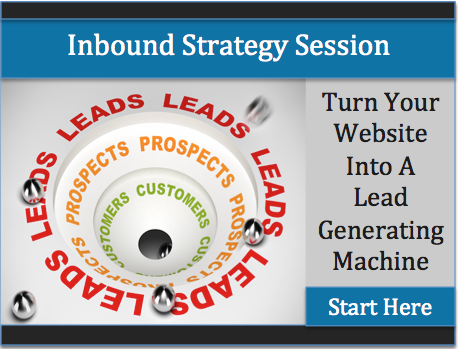Inbound marketing is an important strategy to create an online presence for your business. It can help you show up on search engines, build trust in your brand, and establish your business as a leader in your industry. Despite all of the benefits of inbound marketing, many law firms are not taking advantage of this aspect of digital marketing. Law firms who invest in digital marketing will see increased traffic to their sites, an increase in leads, and new clients. Here’s everything you need to know about inbound marketing for law firms.

Why is Inbound Marketing a Good Fit?
Most businesses can benefit from inbound marketing. However, law firms are a particularly good fit because legal issues can be very confusing. When a person has a legal issue, they are likely to research online for help. When potential clients are searching for the answers to their legal questions, inbound marketing can help drive them to your site to get the answer and become your client.
For a long time lawyers avoided sharing legal information when they were not being paid. However, the Internet has made legal knowledge so accessible that avoiding sharing this information is no longer the best choice. Instead, smart law firms establish their website as a valuable resource for all legal questions, making potential clients more likely to choose these law firms to represent them.
Creating a Quality Website
In order to establish your law firm as a trustworthy resource, you’ll need a quality website. It’s important that your website looks professional and is visually appealing in order to establish your firm as reputable and trustworthy. Your site should be SEO-friendly in order to help you get found on Google. It should have appropriate keywords based on location and type of law, with your services and types of issues you deal with labeled clearly and easy to understand.
Blogging
Creating a blog on your law firm’s website will be an important part of your inbound marketing strategy. You should blog about common questions that potential clients will be searching for like “What happens when you get a DUI?” or “What Should I Do If I’m Being Sued?” You should also create breakdowns of common legal issues written in easy to understand terms. Your potential clients will turn to Google for answers to their questions about any legal issues they might have. Your blog will provide the answers and be a valuable resource for your potential clients, bringing them to your website and turning them into clients.
Building Trust
Creating valuable, easy to understand content will help build trust in your law firm. You will become the resource that people turn to for help, making you seem reliable and a leader in your industry. In addition to valuable content and a professional website, online reviews are another important piece of building trust in your firm. Encourage your clients to leave reviews on Yelp, Google reviews, and other review sites. You should also include positive reviews on a page on your site. According to Forbes, 90% of consumers read online reviews before visiting a business and 74% of consumers say positive reviews make them trust a business more. For this reason, it’s important to encourage your clients to write online reviews and include them on your site to establish your firm as trustworthy, reliable, and successful.
Converting Traffic Into Leads
Increasing your web traffic and driving potential clients to your site is an important part of inbound marketing, but it’s not the whole process. Once potential clients are on your site, inbound marketing can help you convert these visitors into leads and leads into clients. On each blog post, there will be at least one call to action. The call to action will match the stage of the buyer’s journey your lead is in. For example, a general blog topic such as the meaning of a legal term might include an “Ultimate Guide to Legal Terms,” because this person is not looking to hire a lawyer today. A more specific blog such as “What Happens When You Get a DUI?” might include a “Schedule a Consultation” call to action.
Every call to action includes something valuable for your potential client and allows you to capture their contact information. You can then contact them later—via email or phone depending on their buyer’s journey stage and preference—to remind them of your law firm later and provide them with additional information until they are ready to close the deal. Inbound marketing will not only help you attract potential clients, but it will help you turn your website visitors into clients.
ImageWorks, LLC | Inbound Marketing for Law Firms
Inbound marketing is an extremely valuable and important strategy for law firms to attract new clients. However, most firms don’t have the time or resources to do it on their own. That’s where we come in!
As a leading CT Inbound Marketing firm, ImageWorks LLC uses state of the art techniques and is focused on the success of your business. We work with you to improve your current marketing plan, overcome your challenges, achieve your goals, and meet deadlines. By creating content specifically designed to appeal to your dream customers, inbound attracts qualified prospects to your business and keeps them coming back for more.

